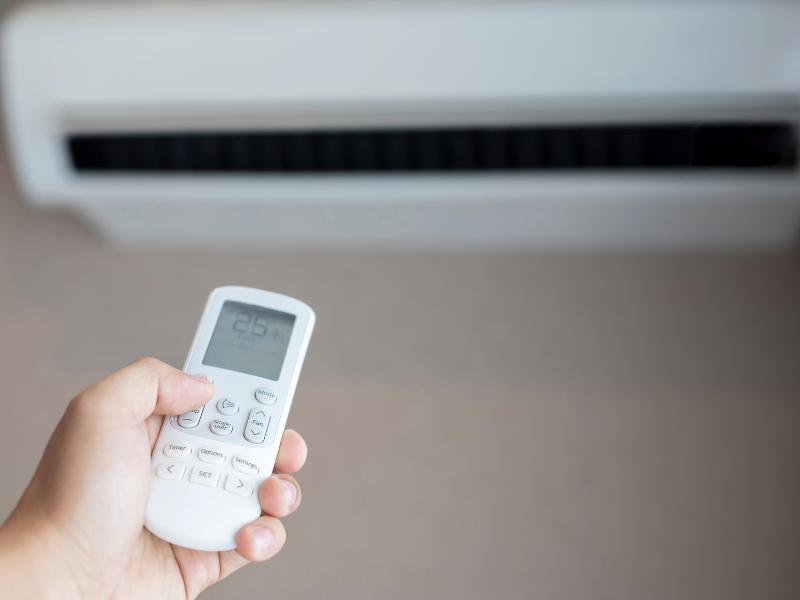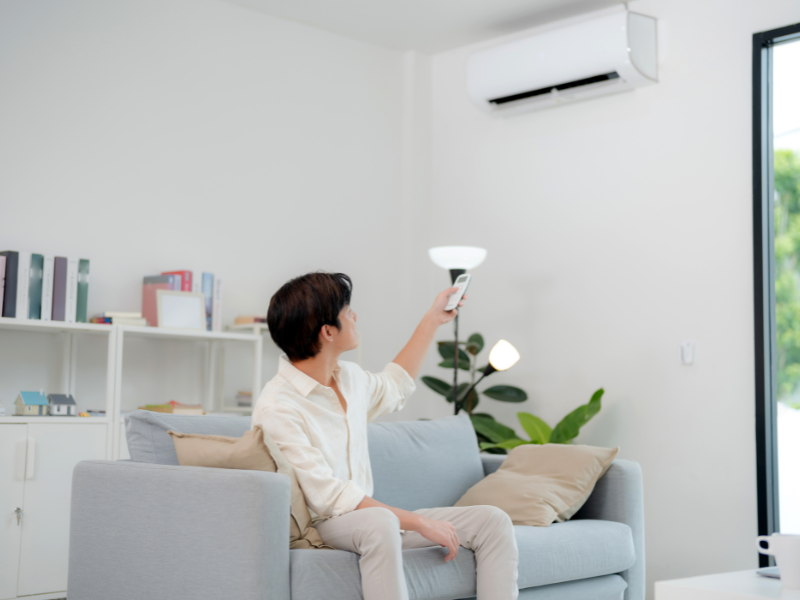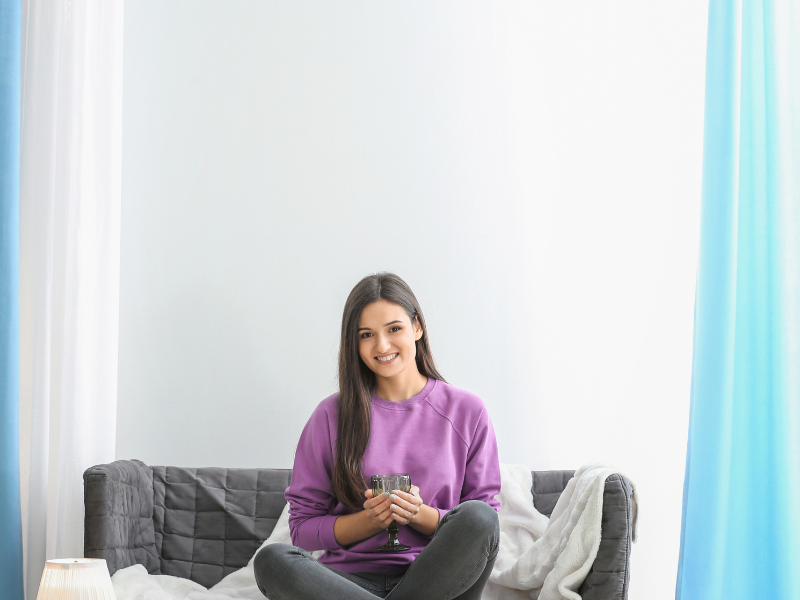


Did the beads of sweat wake you up, leaving you with restless sleep the whole night, and now you desperately want to know about the best air conditioner temperature for sleeping? Then cheer up; we know that the best temperature for sleeping is between 60°F to 67°F (15.6°C to 19.4°C).
Studies have shown that room temperature directly impacts the quality and quantity of sleep. Whether a stuffy, hot room or a cool, breezy room, both leave us in an uncomfortable sleeping environment, thus aggravating stress hormones and insomnia symptoms.
Therefore, finding the ideal air conditioning temperature that provides a happy medium between two extremities is important to enjoy sound catnaps.
So, let’s grab a cup of coffee and dwell on the next section to unravel the mysterious sleep temperature together.
Before getting into the details of the ideal sleep temperature and what role temperature plays in our sleep cycle, let’s look at a few pieces of research that prove how your thermostat setting impacts sleep hygiene.
So, in short, if you set your thermostat to any of the two extreme temperatures, it makes it impossible to enjoy quality sleep.

A room with an ideal AC setting helps us doze faster and for a longer time. Generally, a temperature drop of up to 3 degrees Celsius occurs when we sleep. So, a comparatively cooler temperature must be present to regulate core temperature and release extra heat from the body’s extremities.
The best ac unit temperature for sleeping is somewhere between 60°F to 67°F (15.6°C to 19.4°C).
The body temperature shifts and is regulated during the 24 hours of the day according to circadian rhythm. It hovers around
When the sleep hormones begin to rise, we start to feel sleepy, and our body starts to release heat to decrease the body temperature by a few degrees. Therefore, a room temperature cooler than the body temperature is necessary to remove the extra heat and regulate the body temperature.
A good, well-ventilated room not only helps you catch some sound forty winks earlier but also lets you enjoy them for a longer time.
Actually, sleep homeostasis revolves around the seesaw of adenosine and melatonin hormones. During the day, the melatonin level is low, while that of adenosine increases. However, at night, the reverse happens. When you sleep in a room with cold air at night, the core body temperature starts to regulate quickly. As a result, the rate of vasodilation increases, removing more heat, making the body cool, and increasing the production of melatonin- the sleep hormone.
Moreover, it increases the REM sleep time of the body, which ceases the temperature regulation of the human body.
Where the right AC temperature helps us to enjoy so called power naps, too hot or cold temperature leaves us with restless nights.
A too-hot room temperature leads to a significant reduction in REM sleep and slow-wave sleep in the body. As a result, you find it difficult to sleep. You feel tired, groggy and sleepy.

Similarly, setting AC to too low results in a very cold room temperature for the human body. It dampens the cortisol awakening response CAR of the body. The CAR is particularly an alertness-boosting hormone that is at its peak during the day and helps to keep us alert and active throughout the day. So, when the body encounters a very cold temperature, cortisol level increases, thus contributing to keeping sleep at bay.

So you don’t have trouble sleeping since you’ve been running your air conditioner all night, but you’re concerned about the energy bills? There is a simple solution that can help with your energy savings. It’s time to take control and conserve energy with a thermostat. By setting your thermostat to the right temperature, you can optimize your energy usage and keep your home comfortable.
During the hot summer months, consider setting your temperature of the AC in summer a little higher than usual. Every degree you raise your thermostat can save you a significant amount of money. When it’s time to sleep, you can program your AC to switch from heating the air to gradually cool your room’s temperature. This will help you sleep better, and you won’t have to worry about the bills.
A bad sleeping pattern affects our health drastically. It slumbers us with a number of health problems, a few of which are:
Apart from setting the room temperature to the ideal central air conditioning range, there are a few additional tips that you can opt for to enjoy quality sleep. A few of these are:
Moreover, it is advisable to download a sleep tracker to get a detailed report of your sleep quality. One of the most trusted sleep trackers is ShutEye®. This patented tool analyses your sleep the entire night and generates a sleep report along with a doctor’s recommendations the following day.
Catching healthy naps is essential for the fit and mindful functioning of the human body. Therefore, it is elementary to set your AC to the ideal temperature range in hot summers. It helps to regulate your body’s thermoregulation and sleep homeostasis, thus helping us get better sleep.
Lack, L. C., Gradisar, M., Van Someren, E. J., Wright, H. R., & Lushington, K. (2008). The relationship between insomnia and body temperatures. Sleep medicine reviews, 12(4), 307–317 [online]. Available at: https://doi.org/10.1016/j.smrv.2008.02.003
Lan, L., Xia, L., Tang, J., Zhang, X., Lin, Y., & Wang, Z. (2019). Elevated airflow can maintain sleep quality and thermal comfort of the elderly in a hot environment. Indoor air, 29(6), 1040–1049 [online]. Available at: https://doi.org/10.1111/ina.12599
National Sleep Foundation (2024) 10 Tips for a Better Night’s Sleep [online] [online]. Available at: https://www.thensf.org/sleep-tips/
Obradovich, N., Migliorini, R., Mednick, S. C., & Fowler, J. H. (2017). Nighttime temperature and human sleep loss in a changing climate. Science Advances [online]. Available at: https://doi.org/10.1126/sciadv.1601555
Okamoto-Mizuno, K., Mizuno, K. Effects of thermal environment on sleep and circadian rhythm. J Physiol Anthropol 31, 14 (2012) [online]. Available at: https://doi.org/10.1186/1880-6805-31-14